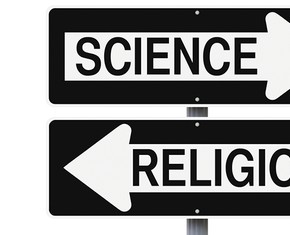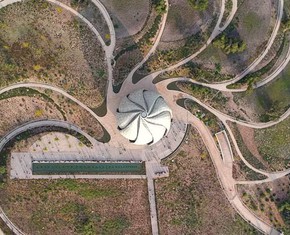The views expressed in our content reflect individual perspectives and do not represent the authoritative views of the Baha'i Faith.
An anvil can be used to forge many things—and a blacksmith with various tools can choose to use them for good or evil.
It is not until the finished item has been produced however that its essential purpose is revealed. Whatever the finished item, it is usually born out of the forge’s fierce heat and struck so many times that sparks fly in different directions. Eventually the blacksmith needs much water to quench the flames.
The Baha’i Faith, born in the midmost heart of the world in the middle of the 19th Century—a period of great social turmoil and political unrest across the globe—produced two great blacksmiths whose revelatory tools sparked off a timely revolution in religious and spiritual ideas. The import and impact of those principles and concepts have altered our reality, their intense heat still not yet fully felt by the majority of humanity.
Ideas and the revolutions they create are not born in a sterile vacuum. Many influential people in the west in the 19th century engaged in an enormous debate and controversy over the nature of reality and the existence or non-existence of God. Science and religion—especially during the middle of the century when Darwin’s ideas emerged—were thrown into deep conflict with one another and thus gave birth to a whole range of new ideas.
By the middle of the 19th century entirely new philosophies had come into existence. Some of these philosophers had a highly developed sense of the spiritual realities, while others firmly grounded their ideas in materialism—the belief that all things result from material interactions. This debate set into motion a contentious battle between intellect and wisdom, belief and non-belief.
From a Baha’i perspective, this battle distracts us from the real purpose and nature of humanity, which can only be perceived in true wisdom. In 1875, Abdu’l-Baha, while still a prisoner in the Ottoman empire, wrote in the introduction to one of his earliest and most philosophical works:
Praise and thanksgiving be unto Providence that out of all realities in existence He has chosen the reality of man and has honored it with intellect and wisdom, the two most luminous lights in either world …. if we look objectively upon the world of being, it will become apparent that from age to age, the temple of existence has been continually embellished with a fresh grace, and distinguished with an ever varying splendor, deriving from wisdom and the power of thought. – The Secret of Divine Civilization, p. 1.
The Baha’i teachings do not claim any exclusive corner on the truth—in fact, they urge us to pay attention to the great philosophers and to their wisdom and insight. One of the most powerful of these 19th century thinkers, born in Germany in 1844 and whose views are still quoted today was Nietzsche, whose infamous words ” God is dead” are often misquoted to this day. With true wisdom, he actually said:
God is dead. God remains dead. And we have killed him. How shall we comfort ourselves, the murderers of all murderers? What was holiest and mightiest of all that the world has yet owned has bled to death under our knives: who will wipe this blood off us? What water is there for us to clean ourselves? What festivals of atonement, what sacred games shall we have to invent? Is not the greatness of this deed too great for us? Must we ourselves not become gods simply to appear worthy of it?
Despite being an atheist, it would appear he tried to tell us that we have completely shattered God by our collective lack of belief. As a result, Nietzsche suggested, we no longer had any basis for morality, and would have to create a new value system instead, becoming fully responsible for our own actions if we were to live without traditional faith.
By 1848, during what later became known as “The Year of Revolution” throughout Europe, Karl Marx and Friedrich Engels were feverishly writing the communist manifesto, which has since influenced large swathes of people throughout the world. It challenged faith in religion, in an attempt to awaken people from the more selfish and negative impacts of capitalism caused by the newly created industrialism which depended on large scale production and the exploitation of labor. Marx’s words therefore still ring true today, especially the following quote: “The production of too many useful things results in too many useless people.”
With an enormous barrage of so called useful (and useless) things flooding our homes today, this resonates with the Baha’i idea that “materialism taken to excess” creates more problems than it attempts to resolve.
But when the means of production have been fully automated and many people are left idle as a result, unless people can seek a higher purpose in life, their lives could become functionally useless. In such periods of extreme poverty and wealth and social injustice the Baha’i emphasis on universal truths such as harmony, justice and in particular the importance of free expression and consultation, becomes a very purposeful tool for reconciliation and true happiness:
We must take counsel together in such wise that no occasion for ill-feeling or discord may arise. This can be attained when every member expresseth with absolute freedom his own opinion and setteth forth his argument. Should anyone oppose, he must on no account feel hurt for not until matters are fully discussed can the right way be revealed. The shining spark of truth cometh forth only after the clash of differing opinions. – Selections from the Writings of Abdu’l-Baha. p. 87.
















Comments
Sign in or create an account
Continue with Googleor